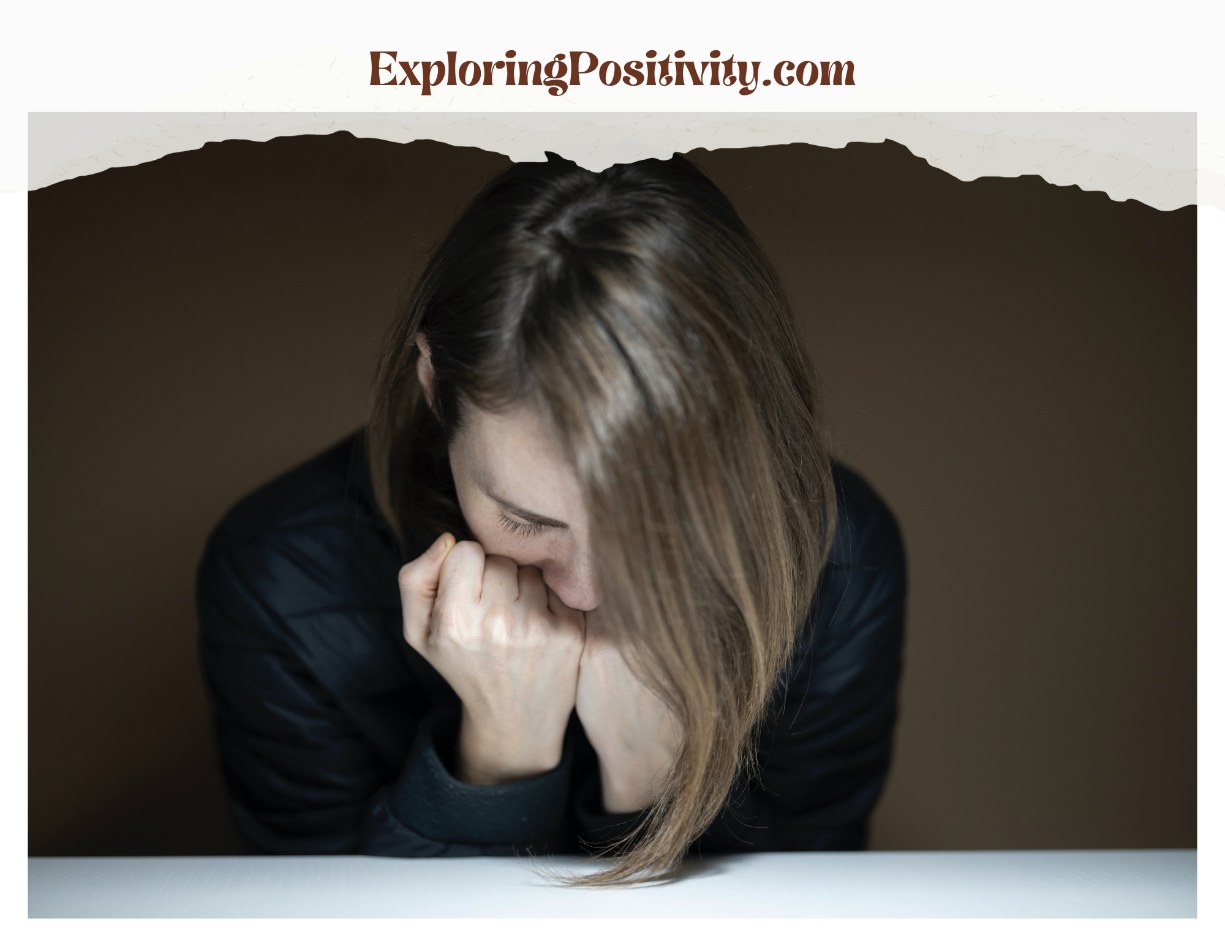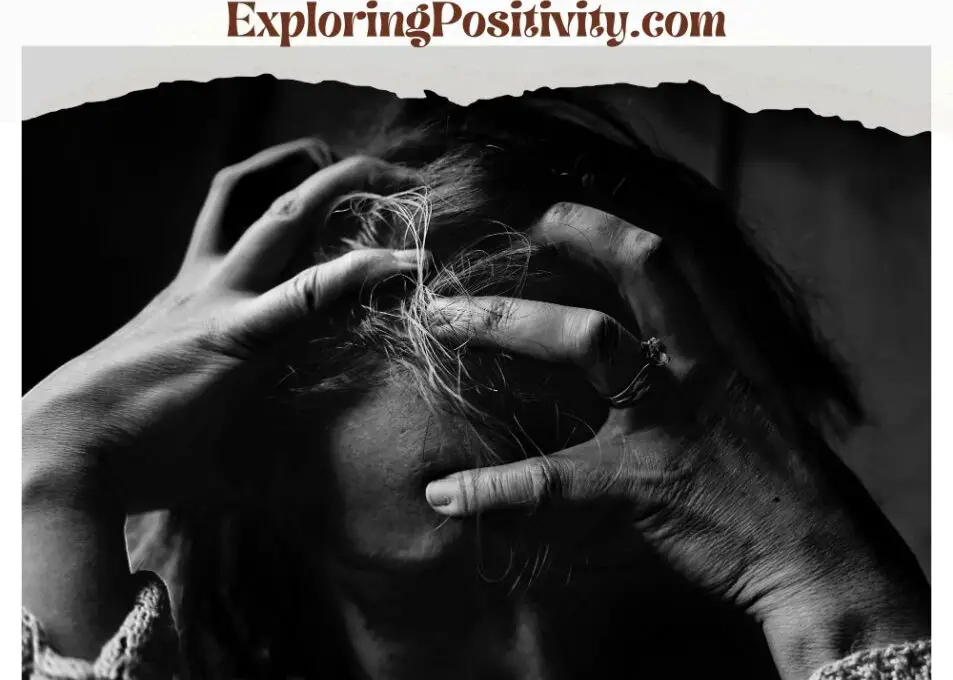Cold Depression is a condition that is becoming increasingly common in today’s world. It is a state of mind where the individual experiences numbness, emptiness, and a sense of detachment. Unlike regular depression, which is characterized by intense feelings of sadness and despair, Cold Depression is marked by a distinct lack of emotion.
It is a subtle and insidious condition that can be difficult to recognize, even for those who experience it. It can affect anyone, regardless of age, gender, or background. It is crucial to understand this condition and its wide-reaching impact on individuals and society as a whole.
In this article, we will delve deeper into the topic of Cold Depression, unveiling the chilling abyss that lies beneath the surface of this complex disorder.
The Link between Cold Depression and Seasonal Affective Disorder (SAD)
As the winter season draws near, many of us experience a change in our overall mood and mindset. For some, this can lead to feelings of sadness and despair that go beyond normal seasonal mood shifts.
This is where the connection between Cold Depression and Seasonal Affective Disorder (SAD) comes into play. While both share similar symptoms, such as low energy, irritability, and lack of motivation, Cold Depression is different from typical winter blues.
Cold Depression can be a severe, long-lasting form of depression that can take a toll on one’s mental and physical health.
It’s important to recognize the signs of Cold Depression and seek help if necessary. Understanding the link between Cold Depression and SAD can help those affected find proper treatment and support.
Understanding the Causes of Cold Depression
It is a type of depression that is often misunderstood. While it shares some symptoms with clinical depression, it is also characterized by a sense of detachment and numbness. Understanding the causes of this condition is essential to properly treating it.
Biological factors such as genetics, hormonal changes, and brain chemistry imbalances can contribute to the onset of Cold Depression. Psychological triggers such as trauma, stress, and negative self-talk can also play a role.
Additionally, environmental factors such as isolation, lack of social support, and financial stress can exacerbate symptoms. By identifying and addressing these underlying causes, individuals can begin to overcome the chilling abyss of Cold Depression.

Recognizing the Symptoms of Cold Depression
- Feeling blue or sad for no particular reason
- Loss of interest in activities that used to bring you joy
- Sleeping more than usual or having difficulty sleeping
- Changes in appetite, often resulting in weight loss or gain
- Feeling sluggish or fatigued
- Difficulty concentrating or making decisions
- Feelings of hopelessness or worthlessness
Impact of Cold Depression on Mental Health
It can be a daunting force on our emotional well-being. As we plunge down into the chilly abyss, our mind can become encapsulated in a thick fog of despair. This can leave us feeling numb, apathetic, and overwhelmed.
In turn, our emotional resilience can be drained, leaving us vulnerable and thirsty for a sense of relief. This is where anxiety disorders can find a foothold. The anxiety that arises from Cold Depression can feed off of our fatigue, our sense of isolation, and our inability to find purpose.
In this way, it can become a vicious cycle that erodes our mental health. It is important to take steps to recognize and address the toll that Cold Depression can take on our psyche.
Only then can we begin to climb out of the darkness.
Cold Depression: Is it a separate condition or a subtype of depression?
Several experts in the field of mental health have debated whether Cold Depression should be classified as a separate condition or a type of depression.
Those who advocate for it being a subtype argue that the symptoms of Cold Depression differ from traditional depression in that individuals experience feelings of emptiness, rejection, and pessimism instead of sadness.
However, others contend that the lack of research and clinical evidence support its inclusion as a separate disorder.
Within the mental health community, perspectives on Cold Depression are varied, and more research is needed to understand its cause, symptoms, and potential treatment options.
Despite this ongoing debate, it is clear that individuals struggling with symptoms of Cold Depression deserve appropriate care and support.

Diagnosing Cold Depression
Diagnosing it can be a challenging task for mental health professionals. Unlike traditional depression, there are no outward signs of sadness or agitation. Instead, individuals with Cold Depression often experience a numbness or lack of emotion.
This makes it difficult to diagnose and can lead to a misdiagnosis or missed diagnosis. Mental health professionals may use screening tools and assessments such as the Beck Depression Inventory or Hamilton Rating Scale for Depression to determine if an individual is suffering from Cold Depression.
These tools can help professionals gain a better understanding of the individual’s symptoms and provide more accurate treatment options.
However, it is important for mental health professionals to have a thorough understanding of Cold Depression and its symptoms to accurately diagnose and treat individuals suffering from it.
Treatment Options for Cold Depression
Psychotherapy
Psychotherapy is a type of therapy that involves talking with a mental health professional to treat a variety of mental health conditions. Psychotherapy can help to improve symptoms by teaching people new coping and problem-solving skills.
Antidepressants
Antidepressants are medications that are used to treat depression. There are many different types of antidepressants, and they work in different ways. Some common side effects of antidepressants include nausea, weight gain, and sexual dysfunction.
Exercise
Exercise is a great way to boost your mood and reduce stress. Even just 30 minutes of moderate exercise per day can make a big difference.
Light Therapy
Light therapy involves exposure to artificial light for a set period of time each day. This type of therapy can be helpful for people who suffer from seasonal affective disorder (SAD).
Diet
Eating a healthy diet is important for overall physical and mental health. Eating plenty of fruits, vegetables, and whole grains can help to improve mood and reduce stress levels.
Sleep
Getting enough sleep is crucial for good mental health. Most adults need around 7-8 hours of sleep per night. If you’re not getting enough sleep, try to establish a regular sleep schedule and stick to it as much as possible.
Relaxation Techniques
Relaxation techniques such as yoga, meditation, and deep breathing can help to reduce stress and improve mood

Lifestyle Modifications to Combat Cold Depression
Cold depression can leave you feeling disconnected, unmotivated and defeated. But, there are lifestyle modifications that can help combat these feelings and keep the chill at bay. Exercise and physical activity, for example, can help release endorphins that naturally boost your mood.
Even just a 20-minute walk outside can make a big difference. Additionally, optimizing your sleep patterns can also greatly improve your mental health.
Creating a regular sleep schedule and avoiding screens before bed can help you get more restful sleep, leaving you feeling refreshed and rejuvenated in the morning. By prioritizing exercise and sleep, you can take control of your mental health and keep cold depression at bay.
Light Therapy: Shedding Light on Cold Depression
It is a serious issue that affects many people, and it can be difficult to find the right solution. However, recent studies have shown that light therapy can be a highly effective treatment for this condition.
Some types of light therapy involve exposure to bright artificial light, while others use natural sunlight or even a special kind of laser.
The effectiveness of these different types of therapy can vary depending on the individual, but many people report feeling much better after trying them out. If you suffer from Cold Depression, it may be worth exploring the benefits of light therapy to see if it can help you too.

Nutritional Strategies to Alleviate Cold Depression
Cold Depression is a serious condition that can have a significant impact on one’s overall health and well-being. While medication and therapy can be helpful, proper nutrition can also play a key role in alleviating symptoms.
Certain foods have been shown to support mood regulation, such as leafy greens, whole grains, and lean proteins. Additionally, getting enough vitamin D and omega-3 fatty acids through sources like fatty fish and fortified dairy products can also be beneficial for those suffering from Cold Depression.
By incorporating these nutritional strategies into one’s daily routine, individuals can take steps towards improving their mental health and overall quality of life.
Get Plenty of Sleep
Sleep is essential for our physical and mental health. When we don’t get enough sleep, our bodies can’t function properly. We may feel tired, irritable, and depressed. Getting enough sleep can help to improve our mood and boost our energy levels.
Eat a Healthy Diet
What we eat can also affect our mood. Eating a diet that is high in processed foods, sugar, and unhealthy fats can contribute to feelings of depression and low energy.
On the other hand, eating a diet that is rich in fresh fruits, vegetables, and healthy fats can help to improve our mood and increase our energy levels.
Exercise Regularly
Exercise is another important factor in maintaining our mental health. When we exercise, our bodies release endorphins, which are hormones that have mood-boosting effects. Exercise can also help to improve our sleep quality and increase our energy levels.
Spend Time Outdoors
Spending time outdoors in natural light can also help to improve our mood. Exposure to sunlight helps to regulate our circadian rhythm, which is the internal process that controls our sleep-wake cycle.
Getting enough sunlight can help to prevent seasonal affective disorder (SAD), a type of depression that occurs during the winter months when there is less natural light.
Limit or Avoid Alcohol
Although drinking alcohol may make us feel temporarily better, it can actually worsen symptoms of depression in the long run. Alcohol is a depressant, so it can make us feel more tired and sluggish. It can also interfere with sleep and cause dehydration, which can lead to feelings of fatigue and low energy.
Connect with Others
Social interaction is important for maintaining our mental health. When we feel isolated and alone, our risk for depression increases. Spending time with family and friends, participating in activities we enjoy, or volunteering for a cause we care about can all help to reduce feelings of loneliness and isolation.

Holistic Approaches for Cold Depression
Cold Depression is a condition that affects many individuals, but there are solutions to manage it. Holistic approaches, such as yoga and meditation, have shown to be effective in controlling the symptoms of this condition.
Through regular practice of these techniques, individuals can experience improved mood, increased energy, and a sense of calm. Additionally, alternative therapies such as acupuncture, herbal remedies, and massage therapy, have also shown potential benefits in treating this condition.
With a focus on holistic approaches, individuals can take control of their mental health and live a happier life.
Seeking Support: Cold Depression and Social Connections
Cold depression is a serious mental health issue that may cause an individual to feel detached and disconnected from those around them. Seeking support from others is crucial to counter this sense of isolation.
Having a strong support network of family, friends, or even colleagues can provide a sense of comfort and an outlet to discuss emotional struggles without the fear of being judged.
Building and maintaining meaningful connections with others can help alleviate feelings of loneliness and hopelessness.
It is essential to remember that seeking help when dealing with cold depression is not a sign of weakness, but rather a brave step towards improving one’s mental health and overall well-being.
Cold Depression in Different Age Groups
Cold Depression is a complex mental health issue that affects people of all ages. Children and adolescents may experience cold depression due to a combination of genetic, environmental, and social factors like traumatic experiences, stress in academic or family settings, and lack of self-esteem.
In comparison, older adults face unique challenges and considerations when it comes to managing it. Besides emotional and psychological perspectives, physical health issues like chronic conditions and medication side effects can also affect the mental state of older adults.
With the right support, it is possible to overcome this chilling abyss and lead a happier, healthier life.
Coping Strategies for Cold Depression
Cold depression can be a difficult experience to navigate, but there are effective coping strategies that can help to manage it. One way to improve our emotional well-being and develop resilience is to practice self-care.
This could include engaging in activities that bring us joy, such as going for a walk, reading a book, or listening to music. It may also involve paying attention to our physical needs by getting enough sleep, eating healthily, and staying hydrated.
Additionally, it’s important to seek support from friends, family, or a mental health professional if we need it. By prioritizing self-care and building our coping skills, we can work towards managing cold depression and taking steps towards a healthier, happier life.

Overcoming Stigma Associated with Cold Depression
Cold Depression is a misunderstood and stigmatized mental health issue that often goes unnoticed. Misconceptions and stereotypes surrounding the condition have contributed to the lack of awareness and support available to those struggling with it.
Overcoming this stigma starts with addressing these misconceptions head-on. By educating ourselves and others about the reality of Cold Depression, we can encourage empathy and understanding for those who suffer from it.
Advocacy and awareness initiatives, such as community outreach and mental health campaigns, also play a crucial role in dismantling the stigma associated with Cold Depression.
With a concerted effort to confront the issue, we can begin to bridge the gaps in understanding and provide a more supportive environment for those who struggle with this condition.
Cold Depression and Substance Abuse
Cold Depression, also known as Persistent Depressive Disorder, is a subtle yet persistent form of depression that often goes unnoticed. Recent studies have linked this type of depression with substance abuse, as individuals may turn to alcohol or drugs to numb the emotions they cannot escape.
Misusing substances can worsen the symptoms of Cold Depression, leading to a vicious cycle that can be difficult to break. Individuals suffering from co-occurring Cold Depression and substance misuse require specialized treatment that addresses both disorders together.
Integrated treatment, which combines therapy and medication management, has shown promising results in assisting individuals to overcome these challenges and lead a fulfilling life.
It is important to understand the link between Cold Depression and substance abuse and to take the necessary steps to seek professional help if one is experiencing these symptoms.
When to Seek Professional Help for Cold Depression
Cold Depression is a serious mental health condition that can affect anyone. It is a type of depression that is characterized by feelings of extreme sadness, hopelessness, and worthlessness.
If you are experiencing cold depression, you may feel like you are in a deep and dark abyss. It can be difficult to cope with these feelings on your own, and it is important to recognize when professional help is needed.
Seeking professional intervention is a crucial step in managing your symptoms and finding healing. The right mental health professional can help you to understand your emotions, develop coping skills, and manage your thought patterns.
If you think that you may be suffering from cold depression, it is essential to seek help from a qualified therapist or counselor. Take that first step toward recovery and reach out for the support you need.
Conclusion
After exploring the unknown territory of Cold Depression, it is evident that this icy abyss can leave one feeling isolated and alone. However, it is important to remember that this condition is not a life sentence.
By acknowledging the key points we have uncovered, such as the importance of seeking professional help and practicing coping mechanisms like mindfulness, we can begin to unveil ways to overcome this chilling condition.
It may not be an easy journey, but it is essential to have hope and focus on building resilience. By opening ourselves up to positive influences and surrounding ourselves with supportive people, we can navigate through the tumultuous waters of Cold Depression and find comfort in knowing that we are not alone.
What are the symptoms of Cold Depression?
Symptoms may include persistent sadness, loss of interest, lack of motivation, social withdrawal, fatigue, difficulty concentrating, and insomnia.
What causes Cold Depression?
Various factors can contribute, such as traumatic experiences, chronic stress, unresolved emotional issues, genetic predisposition, and chemical imbalances in the brain.
How is Cold Depression different from regular depression?
Cold Depression typically lacks the intense sadness commonly associated with depression, instead manifesting as a profound sense of emotional detachment.




